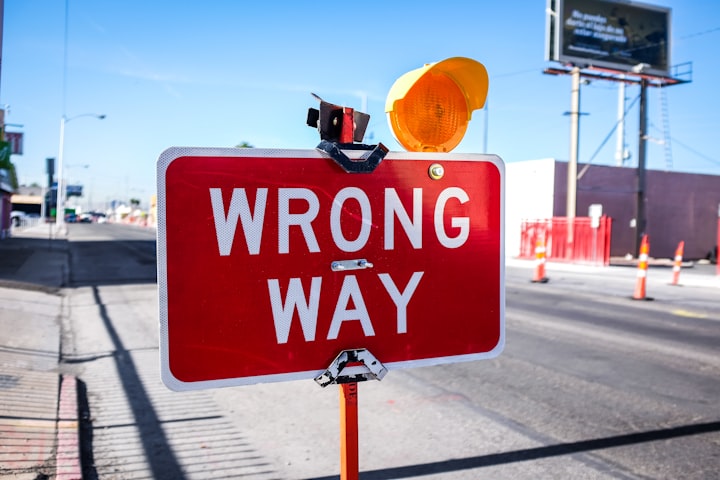Why Is Writing Fiction So Freaking Hard?
A brief, thorough investigation.
To be clear, I'm not about to have a good old bitch about my job, which is to write books with swear words in the title.
I love my job. Getting to make things up for a living is the absolute best.
But just because it's the best doesn't mean it isn't hard. Just ask any professional athlete. The top basketball players in the NBA, for example, live and breathe their sport, but still regularly acknowledge that it's an incredibly high-pressure career.
Writing is the same. There are some days where it feels impossible to put words down, where what you're writing starts to look and feel like a treatise on ancient drainage systems written in ancient Sanskrit.
This is especially true if you're writing fiction—short stories or novels. These are projects that almost always take a long, long time, and there are bound to be days where it just doesn't happen. Writers don't agree on a lot, but we almost all agree on this: what we do is freaking difficult.
But up until recently, I'd never really considered why this was. What about writing, as an activity, made it so hard?
I've been thinking about this a lot lately. I haven't been especially enamoured with what I'm writing, not because I don't find it interesting, but simply because I don't feel like I'm performing to my full potential. I'm still getting it done, but there is a nagging feeling that I should be enjoying it more, that I should be more satisfied.
I'm normally very suspicious of nagging feelings, which recall imposter syndrome and comparison to others and are generally not be trusted. But a few days ago, I realised something interesting. Something that explained, neatly and completely, why writing is so difficult.
Choices.
Writing is about choices.
I'm not just talking about the big, macro choices: what is this book about, who are the characters, what is the central conflict, what am I going to have for lunch, how can I put off this dreadful business of writing for as long as humanly possible?
I am also talking about the fact that every single piece of fiction writing anyone ever does contains thousands and thousands of micro-choices.
Every word is a choice. Where you place it in the sentence is a choice. The punctuation is a choice. The length of paragraphs, the names of characters big and small, what they're doing, what they're holding, what they think. When you write, you aren't just putting words on a screen. You're engaged in making choices.
What that means is that you are constantly in a low-level state of choice fatigue This goes beyond, say, having too many different types of potato chips to choose from in the supermarket. Because here's the kicker: at least with potato chips, your choices are finite. Companies can be as creative as they like with flavours, but you're still going to be limited by a) the amount of space on the shelves, and b) just how much insanity you're prepared to tolerate when it comes to snack food.
But with writing?
With words?
The English language has around 170,000 words in it. Now, obviously, you won't be choosing from the totality of them every single time; there are very few circumstances where you will meaningfully consider using the word Floccinaucinihilipilification (it means the action or habit of estimating something as worthless, since you ask. And many reviewers of my books certainly do).
And of course, words are influenced by context, which narrows things down considerably. But even then, you're having to make choice after choice after choice, and each time you have to pull the right word from your entire set of vocabulary.
And here's the kicker you knew was coming: choice is exhausting. It can cause you to freeze. It can leave you disappointed and dissatisfied. It can absolutely drain you of energy.
There is a reason, let us say, why so many writers—including me—write in the morning. Our (theoretically) rested brains find it easier to cope with the thousands of overwhelming micro choices we have to make.
There's a reason why so few writers do their writing later on (with, it must be said, some exceptions—I seem to remember Jay Kristoff saying he does his work at two in the morning, but I can't find a source for it). It's the same reason you see poor schlubs in suits standing in the potato chip aisle at 630pm on a weekday, staring numbly at a bajillion flavours. It's a shitty time to be making choices.
The world right now makes that even harder. We've had two years of Covid. Climate change is going nuts. Putin, the flaming cunt-knuckle, has decided that now is the time to have a nice little war. We are already in a state of panic and trauma.
Making choices is hard enough when things are good. To stretch the metaphor further, right now the world is at 630pm on a weekday, and everything sucks.
There's no solution for this, by the way. Short of training AI to do it for us—which some other flaming cunt-knuckles are actually trying to do—we are stuck with those micro-choices every time we write. But after realising that it was going on, I feel a little better about what I'm writing at the moment.
This article comes directly from my weekly newsletter, Sh*t Just Got Interesting. Want to read stories like it a week before anyone else? Sign up here. And you get a free audiobook too, which is nice.
About the Creator
Jackson Ford
Author (he/him). I write The Frost Files. Sometimes Rob Boffard. Always unfuckwittable. Major potty mouth. A SH*TLOAD OF CRAZY POWERS out now!







Comments
There are no comments for this story
Be the first to respond and start the conversation.